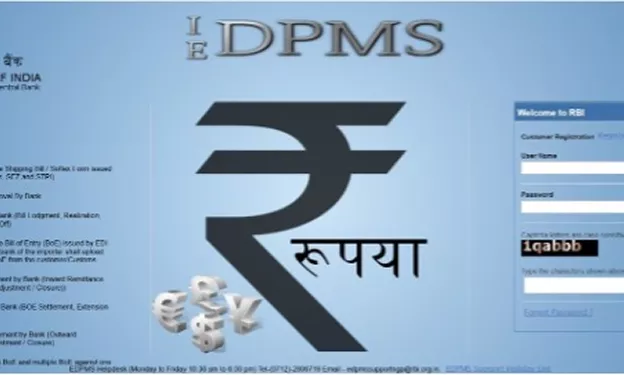Advisory for EDPMS and IDPMS Closures
Global training programs designed to enhance cross-border trade expertise.
Sriya Enterprise provides expert services for IEDPMS (Import and Export Data Processing and Monitoring System) and EDPMS (Export Data Processing and Monitoring System), assisting exporters and importers with mandatory RBI portal registration, compliance, and transaction monitoring. These platforms ensure real-time tracking of trade data, linking customs, banks, and RBI for transparent forex flows under FEMA regulations.
| System | Purpose | Launch Year | Focus Areas |
| EDPMS | Monitors export shipments, proceeds realization, shipping bills, SOFTEX, and inward remittances for 100% forex repatriation. | 2014 | Exports of goods/services from India. |
| IDPMS | Tracks import payments, Bills of Entry (BOEs), and outward remittances to enforce timely payments and compliance. | 2016/2017 | Imports into India |

Key Compliance Challenges
One major challenge in managing IEDPMS and EDPMS compliance is the complexity and volume of trade documents and data inputs that must be accurately mapped in the system. Exporters often face difficulties in matching shipment details with payment realizations due to discrepancies in documents like shipping bills, invoices, and bill of lading, which can cause delays, queries from regulators, or blocked funds. Additionally, many traders struggle with the frequent updates and operational nuances in portal functionalities, FEMA regulations leading to underreporting of transactions or penalties for late compliance.
Real-Life Compliance Scenario
A real-life challenge frequently encountered involves exporters facing delays or blocked payments due to mismatches in shipment details and foreign exchange receipts. For example, a textile exporter from India shipped goods to a European buyer, but due to errors in invoice values and shipping bill descriptions not matching bank remittance records, the payment got stuck in the banking system. This resulted in repeated RBI queries and delayed export incentive claims. Sriya Enterprise intervened by conducting a detailed data reconciliation audit, collaborating with the bank and customs to correct reported data on the EDPMS system, enabling payment release and clearance of incentive claims.

How Sriya Enterprise Addresses These Challenges?
Sriya Enterprise addresses these challenges by providing dedicated transaction monitoring services to flag anomalies early, help reconcile shipments with inward remittances, and resolve any data mismatches proactively. Their expertise includes alerting clients about overdue transactions, incomplete or incorrect filings, and assisting in compliance remedial measures.
Sriya Enterprise Support
Ensures adherence to RBI rules, flags overdue transactions, and supports incentive claims like GST refunds
Assistance with bank reporting, e-BRC generation, shipment-payment matching, and discrepancy resolution
For export transactions under technology/software categories, dedicated SOFTEX filing services, supporting accurate submission of SOFTEX forms required for software exports, IT-enabled services, and other approved software-related remittances. This ensures smooth claim of export incentives and compliance with RBI norms on foreign exchange realization.
Handling of miscellaneous reporting on the STPI (Software Technology Parks of India) portal, including Annual Performance Reports (APR) and Quarterly Progress Reports (QPR). These critical compliance reports are essential for STPI-registered units to demonstrate adherence to export obligations, utilization of infrastructure, and proper maintenance of records as per DGFT and STPI norms.
Mandatory IEDPMS registration guidance for all exporters/importers to avoid penalties and delays

